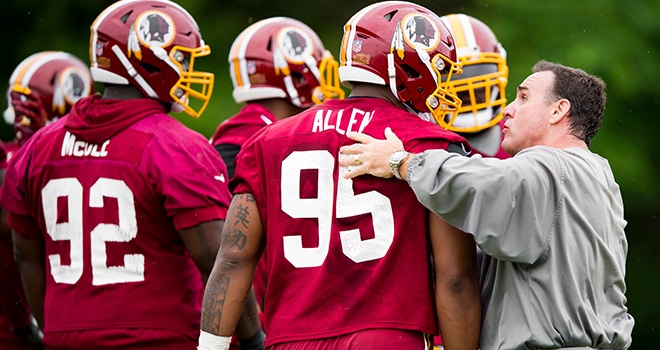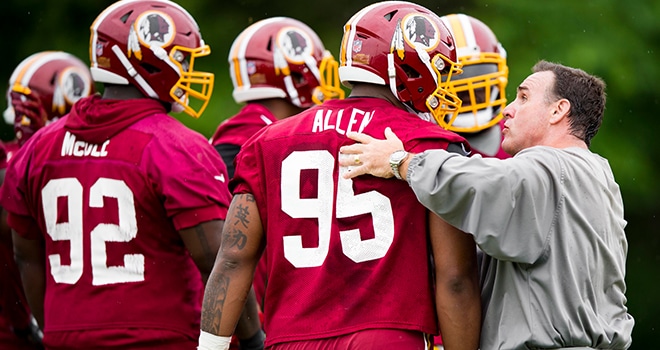
The U.S. Supreme Court handed down a major victory for free speech on Monday in striking down a provision of the Lanham Act that barred registration for “disparaging” trademarks. The decision came in Matal v. Tam, a case that we have been following. I have previously written about my disagreement with the U.S. Patent and Trademark Office decision to rescind federal trademark protections for the Redskins as a racially disparaging name. As predicted, the ruling answered the question raised in the prior column in controversies like the denying of trademark protection to the Washington Redskins. The decision is good news for Washington’s NFL team, which lost its trademark because its name is disparaging to Native Americans.
Tam is the “front man” for the Asian-American rock band The Slants and, in 2010, filed an application seeking to register the mark THE SLANTS. Tam’s group called itself the Slants because it wanted to “reclaim” and “take ownership” of stereotypes about Asians.
The Lanham Act provision, known as the “disparagement clause,” bans the registration of a trademark that may disparage “persons, living or dead, institutions, beliefs, or national symbols, or bring them into contempt, or disrepute.” I have been highly critical of the provision for years in both columns and testimony before Congress. Now it is gone but I remain perplexed how Congress failed to act on the matter to protect free speech for so many years. One obvious reason is that many legislators lined up praising the denial of trademarks as entirely proper.
House Minority Leader Nancy Pelosi celebrated the denial of the trademark, which clearly contravened free speech protections. Sen. Harry Reid not only praised the action but predicted that the Redskins name would be gone within three years. That was in 2014. Democratic Senator Maria Cantwell said, “We’re so excited to know that finally people are recognizing that this issue can no longer be a business case for the NFL to use this patent.”
Fortunately, the Supreme Court has shown the faith and fealty for free speech that is so conspicuously absent in Congress. Justice Samuel Alito wrote. “It applies equally to marks that damn Democrats and Republicans, capitalists and socialists, and those arrayed on both sides of every possible issue. It denies registration to any mark that is offensive to a substantial percentage of the members of any group. But in the sense relevant here, that is viewpoint discrimination: Giving offense is a viewpoint.” Alito added: “The commercial market is well stocked with merchandise that disparages prominent figures and groups, and the line between commercial and non-commercial speech is not always clear, as this case illustrates,” Alito added. “If affixing the commercial label permits the suppression of any speech that may lead to political or social ‘volatility,’ free speech would be endangered.”
That was a view shared by eight out of nine justices — showing just how far these members and commentators were outside of the lines for free speech. The Redskins should now be in a good position to dismiss the earlier ruling on its trademark. The matter will remain where it should have been left: to the court of public opinion.
The seven other members of the court agreed that the provision amounted to viewpoint discrimination, though four of the justices wrote separately to state that the holding made it unnecessary to give extended treatment to other questions raised by the parties.
In the separate opinion, Justice Anthony M. Kennedy said the registration had been denied not because the Slants intended to demean or offend, but because the government thought the trademark would have that effect on some Asian-Americans.
“The government may not insulate a law from charges of viewpoint discrimination by tying censorship to the reaction of the speaker’s audience,” Kennedy wrote.
All eight justices agreed that trademarks are not government speech, which would have required a different analysis.
Here is the opinion: Matal v. Tam
Reprinted with permission from JonathanTurley.org.


